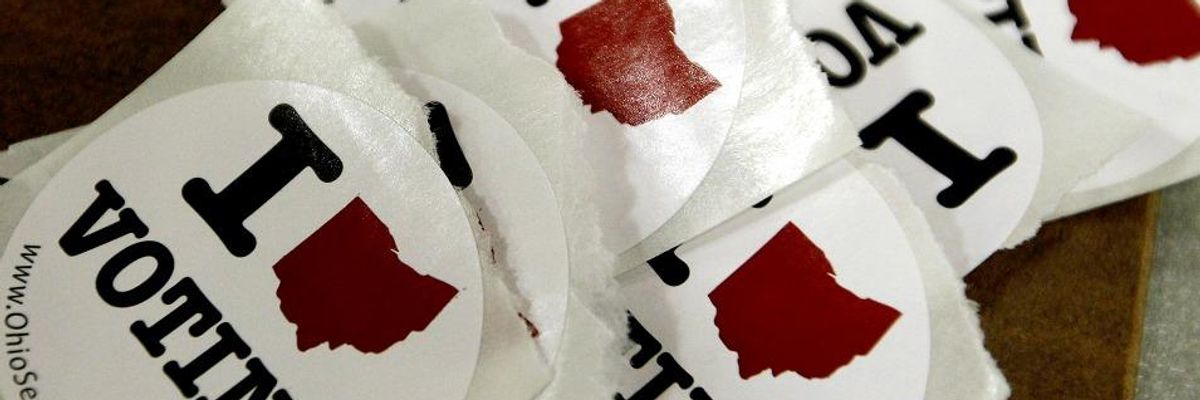The U.S. Supreme Court on Monday ruled that early voting in the state of Ohio can be curtailed, ignoring arguments that access to early voting improves turnout and gives wider poll access, particularly to working, low-income, and elderly people.
The decision came just hours before early voting was set to begin in the state and critics of the decision worry that the court has signaled how it may rule on similar voting rights cases from other states that our now making their way through lower courts.
According to SCOTUS Blog:
With just sixteen hours before polling stations were to open in Ohio, the Supreme Court on Monday afternoon blocked voters from beginning [Tuesday] to cast their ballots in this year's general election. By a vote of five to four, the Justices put on hold a federal judge's order providing new opportunities for voting before election day, beyond what state leaders wanted. [...]
Depending upon the timing of the state's filing of a petition for review and the Court's action on it, Monday's order may also mean that early voting will not be permitted on most Sundays between now and election day, November 4, and will not be permitted during evening hours -- that is, after 5 p.m.
Early voting during "Golden Week," on Sundays, and in evening hours are the opportunities that civil rights groups have said are most important to black and low-income voters and the homeless.
Advocates supportive of increased early voting were appalled by the court's decision.
"We are disappointed that by a bare majority, the Supreme Court reinstated controversial voting changes that could make it harder for tens of thousands of Ohioans to vote," said Wendy Weiser, director of the Democracy Program at the Brennan Center for Justice at NYU School of Law. "Courts should serve as a bulwark against rollbacks to voting rights and prevent politicians from disenfranchising voters for political reasons."
And Dale Ho, director of the ACLU's Voting Rights Project, said: "Thousands of Ohioans rely on early voting. For many, it is their only chance to cast a ballot during an election. While today's order is not a final ruling on the merits, it will deprive many Ohioans of the opportunity to vote in the upcoming election as this case continues to make its way through the courts."
Though the court has repeatedly gone out of its way to grant ever-wider influence of money and large donors in political campaigns and elections, critics say that this latest decision reveals the conservative majority's disdain for legislation designed to improve voter access for everyday voters.
As John Nichols writes at The Nation:
In case there was any remaining confusion with regard to the precise political intentions of the US Supreme Court's activist majority, things were clarified Monday. The same majority that has made it easier for corporations to buy elections (with the Citizens United v. FEC decision) and for billionaires to become the dominant players in elections across the country (with the McCutcheon v. FEC decision) decided to make it harder for people in Ohio to vote.
Yes, this Court has messed with voting rights before, frequently and in damaging ways. It has barely been a year since the majority struck down key elements of the Voting Rights Act.
But Monday's decision by the majority was especially blatant--and immediate.

